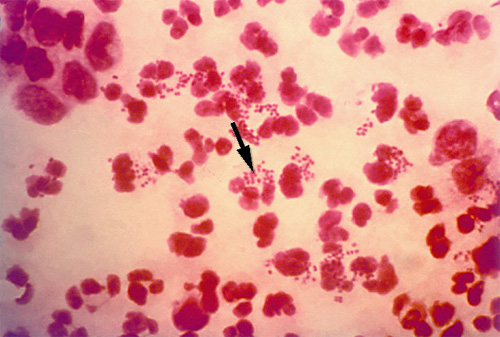Antibacterial detection against all antibiotics
Scientists have discovered a new strain of 'bacteria' that causes gonorrhea, which is resistant to all antibiotics. This virus can be a threat to global health.
A new strain of gonorrhea bacteria - called H041 - was discovered in Japan. This bacterium can be resistant to all antibiotics that have been used to treat the aforementioned sexual disease. Therefore, doctors are forced to use treatments that have not been tested against the virus.

Bacteria that cause gonorrhea develop into a new strain of bacteria that can fight back
all kinds of antibiotics. Photo: Alamy
According to the Daily Mail , Dr. Magnus Unemo and colleagues from Sweden's Sexually Transmitted Diseases Laboratory discovered a new strain of H041, after analyzing samples sent from Kyoto. (Japan). The team found that bacteria H041 can resist all cephalosporin antibiotics - the latest antibiotic used to treat gonorrhea.
' Since antibiotics have been used to treat gonorrhea in the 1940s, gonorrhea bacteria have been able to develop mechanisms against all antibiotics used to treat ', advanced. Dr. Magnus Unemo said.
Gonorrhea is caused by a type of bacteria and can spread through sexual contact. If the disease is not treated, it can lead to pelvic inflammatory disease, ectopic pregnancy and infertility in women. For men, gonorrhea causes symptoms of vasculitis and can also lead to infertility. If gonorrhea is infected with blood, it can be life threatening.
Last year, British scientists also warned that bacteria causing gonorrhea could become a new strain of bacteria after many reports of cases of people with drug-resistant gonorrhea in Southeast Asia. and Australia has an increasing trend.
Scientists say the best way to reduce the risk of resistance is to treat gonorrhea with two or more antibiotics at the same time. However, Dr. Unemo is concerned, this treatment could create a new bacterium that is resistant to many drugs in the next 10 years.
- To know how horrible the antibiotic scenario is, go back to the past
- What are antibiotics and classify antibiotics
- 'Heavenly' facts about antibiotics
- Komodo blood dragon will be made into new antibiotics
- The magic of Komodo dragon blood
- Find new antibiotics under the ocean
- Why do you know that antibiotics do not treat flu, many people continue to abuse?
- Promote the application of antibacterial technology in Vietnam
- Found clues of antibacterial hybrid resistance
- Antibiotics from dirt
- Bad habits of parents hurt the liver and kidneys, endanger children
- Be pregnant, don't use antibacterial soap!
 Green tea cleans teeth better than mouthwash?
Green tea cleans teeth better than mouthwash? Death kiss: This is why you should not let anyone kiss your baby's lips
Death kiss: This is why you should not let anyone kiss your baby's lips What is salmonellosis?
What is salmonellosis? Caution should be exercised when using aloe vera through eating and drinking
Caution should be exercised when using aloe vera through eating and drinking